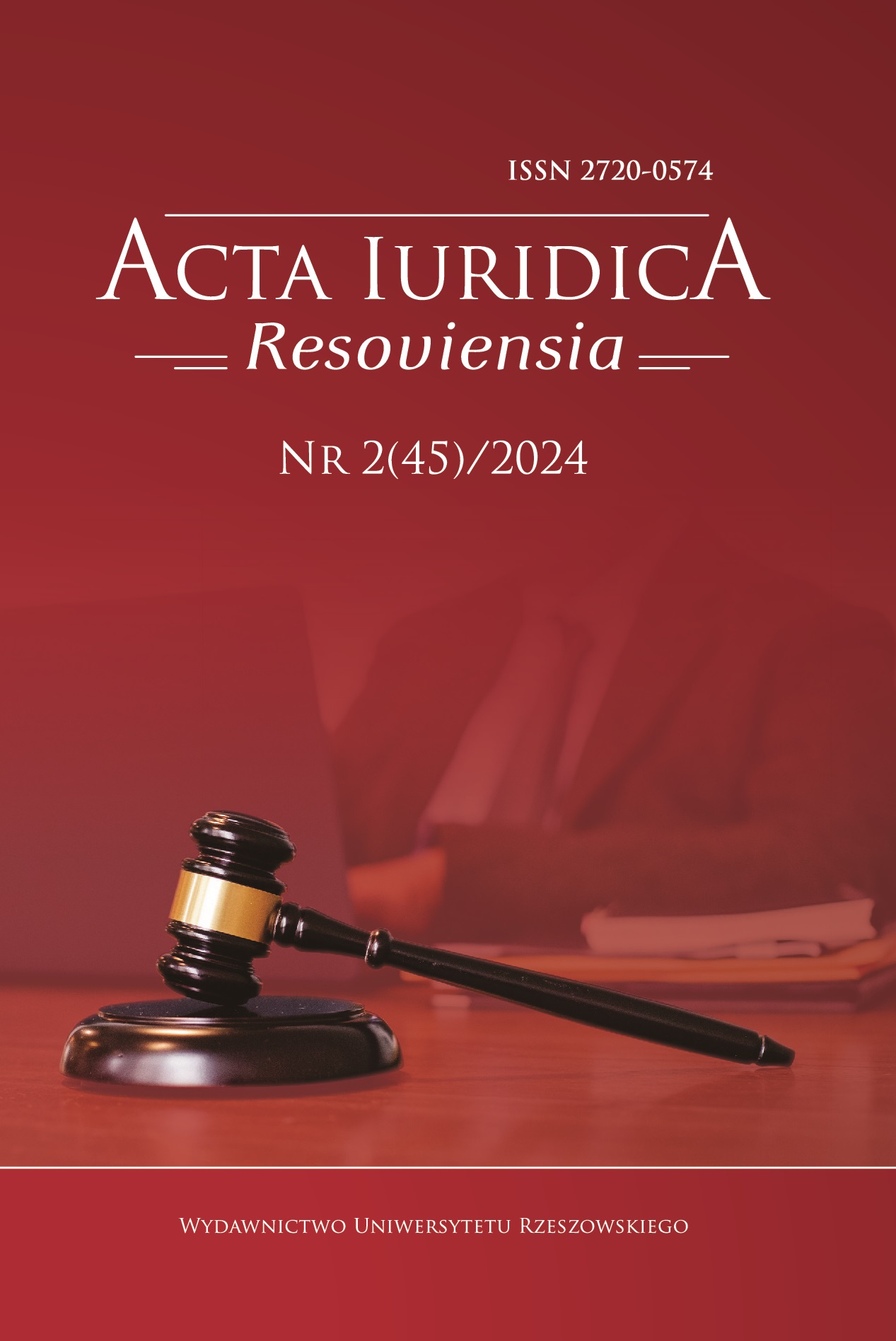The trait of particular cruelty as an evaluative trait
DOI:
https://doi.org/10.15584/actaires.2024.2.5Keywords:
criminal law, cruelty, particular cruelty, evaluative traitAbstract
Particular cruelty is a distinctive trait characterized by a complex structure, falling within the realm of evaluative, nuanced, and gradable characteristics. The primary challenge in interpretation lies in the nuanced evolution from cruelty to particular cruelty. Establishing a clear demarcation between what constitutes cruelty and what constitutes particular cruelty poses difficulties both in doctrinal examinations and in jurisprudence, primarily due to the subjectivity inherent in judgment and the ambiguity surrounding this trait. Simultaneously, the evaluative essence of particular cruelty necessitates recourse to moral norms in pursuit of maintaining objectivity.
In the field of criminal law, doctrinal studies emphasize the abstract concept of cruelty itself, while case law employs a more concreto and individualized approach. The complementary relationship between these two aspects forms the cornerstone for a thorough understanding of the concept of particular cruelty. Attempting to compile a catalog of particularly cruel behaviors proves challenging without inadvertently constraining the discretion of the court.
Downloads
Downloads
Published
How to Cite
Issue
Section
License
Copyright (c) 2024 Acta Iuridica Resoviensia (formelry: The Scientific Journal of the University of Rzeszow, Law Series)

This work is licensed under a Creative Commons Attribution-NonCommercial-NoDerivatives 4.0 International License.

